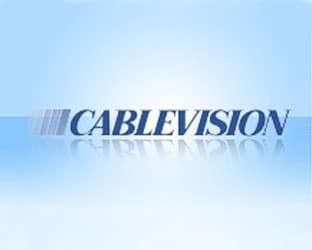 In an amicus brief 9/21 in federal court in New York, Cablevision Systems said Aereo’s service violates copyright laws. What makes this filing significant is that it is a legal victory Cablevision scored against the TV industry that Aereo has cited in making the case that its service does not violate copyright law.
In an amicus brief 9/21 in federal court in New York, Cablevision Systems said Aereo’s service violates copyright laws. What makes this filing significant is that it is a legal victory Cablevision scored against the TV industry that Aereo has cited in making the case that its service does not violate copyright law.
In case you hadn’t heard, Barry Diller’s Aereo is a service that transmits the signals of local broadcast stations via the Internet to smartphones, tablets and Internet-friendly TVs. Aereo charges subscribers a monthly fee of $12 for a small antenna that receives broadcast signals and a remote digital video recorder that can hold up to 40 hours of shows. So far, Aereo is only in NYC.
CBS, NBC, Fox and Univision — are trying to shut Aereo down, claiming the service violates copyright laws and disrupts their revenue model. The parties filed a preliminary injunction to shut it down in federal court in the Southern District of New York.
But in July, that request was denied by Judge Alison Nathan, who cited a U.S. 2nd Circuit Court of Appeals ruling that upheld that a remote DVR service offered by Cablevision did not violate copyright law. If not for that ruling, she noted, “plaintiffs would likely prevail on their request for a preliminary injunction.” The broadcasters are appealing that ruling.
Cablevision said the interpretation of that 2nd Circuit decision is incorrect, according to an LA Times story.
“The critical legal difference is that Cablevision pays statutory licensing and retransmission consent fees for the content it retransmits, while Aereo does not,” the company said in its filing.
Cablevision went on to question Aereo’s claim that its use of individual antennas and hard-drive recordings for each subscriber means it is not violating copyright law if the transmission is available only to one person.
“Because the recordings are made available to any subscriber, the resulting performances are to the public, even though members of the public watch the recordings one at a time,” Cablevision countered.
Cablevision also took issue with claims that its remote DVR service (in which programs recorded by subscribers are stored in a headend rather than on individual cable boxes), is similar to Aereo: “Unlike Aereo, Cablevision operates a licensed cable system that retransmits content to subscribers pursuant to agreements with content providers.”
See the LA Times story here
RBR-TVBR observation: Simply put, Cablevision sees a future threat to its own revenues. If Aereo takes off nationwide, unchecked, expect more cord-cutting. Since most newer TVs have built-in antennas/tuners that can pick up over-the-air broadcast signals, the real value of Aereo lies in its cloud-based DVR and its ability to watch content on multiple platforms (TVs, iPads, iPhones). That also threatens cable companies’ TV Everywhere efforts.





